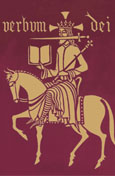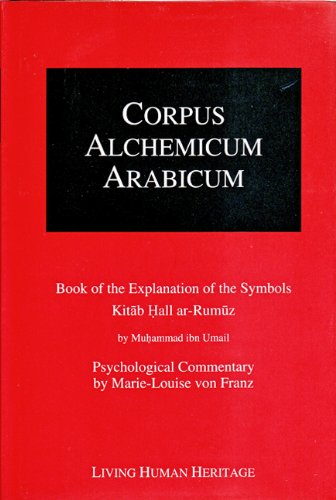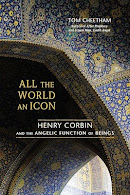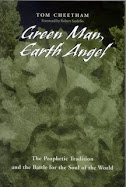"...the Imagination (or love, or sympathy, or any other sentiment) induces knowledge, and knowledge of an 'object' which is proper to it..."
Henry Corbin (1903-1978) was a scholar, philosopher and theologian. He was a champion of the transformative power of the Imagination and of the transcendent reality of the individual in a world threatened by totalitarianisms of all kinds. One of the 20th century’s most prolific scholars of Islamic mysticism, Corbin was Professor of Islam & Islamic Philosophy at the Sorbonne in Paris and at the University of Teheran. He was a major figure at the Eranos Conferences in Switzerland. He introduced the concept of the mundus imaginalis into contemporary thought. His work has provided a foundation for archetypal psychology as developed by James Hillman and influenced countless poets and artists worldwide. But Corbin’s central project was to provide a framework for understanding the unity of the religions of the Book: Judaism, Christianity and Islam. His great work Alone with the Alone: Creative Imagination in the Sufism of Ibn ‘Arabi is a classic initiatory text of visionary spirituality that transcends the tragic divisions among the three great monotheisms. Corbin’s life was devoted to the struggle to free the religious imagination from fundamentalisms of every kind. His work marks a watershed in our understanding of the religions of the West and makes a profound contribution to the study of the place of the imagination in human life.Search The Legacy of Henry Corbin: Over 800 Posts
Wednesday, June 29, 2011
Sacred Web 27
Sacred Web 27 is now available.
It contains many things of interest to readers of this blog, on Shi'ism, the Ismailis and one piece (by yours truly) on Henry Corbin:
Barzakh, the Opened Field
by Tom Cheetham
In this essay, which was delivered as a lecture at the University of Kent, Canterbury, England, in October, 2010, Cheetham discusses in a personal way his introduction to the seminal French philosopher, Iranophile, and Islamic scholar, Henry Corbin, and deals with several of his key ideas, focusing in particular on the notion of the barzakh, the isthmus or bridge between the outer and inner worlds, the imaginal realm where the “signs” of reality can be interpreted as on opened field of meaning. The essay concludes with an exploration of the relevance of Corbin's ideas to poetics and the transformative power of language.
It contains many things of interest to readers of this blog, on Shi'ism, the Ismailis and one piece (by yours truly) on Henry Corbin:
Barzakh, the Opened Field
by Tom Cheetham
In this essay, which was delivered as a lecture at the University of Kent, Canterbury, England, in October, 2010, Cheetham discusses in a personal way his introduction to the seminal French philosopher, Iranophile, and Islamic scholar, Henry Corbin, and deals with several of his key ideas, focusing in particular on the notion of the barzakh, the isthmus or bridge between the outer and inner worlds, the imaginal realm where the “signs” of reality can be interpreted as on opened field of meaning. The essay concludes with an exploration of the relevance of Corbin's ideas to poetics and the transformative power of language.
Tuesday, June 28, 2011
The Jung Wars revisited...
Back in June 2010 I posted a very short paragraph on The Jung Wars. I was slightly annoyed at the time by the persistent refusal of so very many academics to regard Jung with anything but disdain and deep suspicion. I pointed out Shamdasani's work as something of an antidote to the prevalent misreading of Jung. I have been surprised that this post has drawn an unusually large number of page views. During my recent travels I heard tales of woe from a friend concerning the problems one can have in certain academic circles if one has an interest in Jung or in Henry Corbin. They are both persona non grata. I have tried to do my part to show why Corbin's work, in spite of some faults, might yet be useful and interesting. So, although I try now to post things not directly related to Henry Corbin on my other blog, I'll add a further note on this topic here. One other most important critic and defender of the work of Jung who I should have mentioned before is Susan Rowland. Her books so far are these: Jung: A Feminist Revision (2002), Jung As A Writer (2005) and C.G. Jung in the Humanities: Taking the Soul's Path (2010). I look forward to Psyche and Ecocriticism which is due out next summer. Rowland has recently accepted a position in the Core Faculty at the Pacifica Graduate Institute in Santa Barbara. I recently retrieved a memory of her work from the recesses of my mind since it has important bearing on my current writings on Corbin, Jung and Hillman. I wish I had recalled it sooner.
Thursday, June 23, 2011
Hamann, again...
My interest in J.G. Hamann has re-awakened recently. Readers of this blog will know of his crucial importance for Henry Corbin. I want to note this audio file (available for a modest fee) of an interview with John Betz, author of the superb After Enlightenment.
Wednesday, June 22, 2011
Rothenberg on Bloom
Jerome Rothenberg - Harold Bloom: The Critic as Exterminating Angel
I'm so happy to have read this - thanks yet again to Ron Silliman. The essay is from Sulfur in 1981. Bloom has left his mark on Henry Corbin's legacy, through his introduction to the new edition of Corbin's Creative Imagination (renamed Alone with the Alone, I suspect at Bloom's suggestion) and through his own book Omens of Millennium. I have long had a hearty dislike for Bloom's work and I bristle at his readings of Corbin. Rothenberg's fine essay helps explain why I find Bloom's attitude so inimical to Corbin's entire project.
Jerome Rothenberg: Photo by Charles Bernstein.
I'm so happy to have read this - thanks yet again to Ron Silliman. The essay is from Sulfur in 1981. Bloom has left his mark on Henry Corbin's legacy, through his introduction to the new edition of Corbin's Creative Imagination (renamed Alone with the Alone, I suspect at Bloom's suggestion) and through his own book Omens of Millennium. I have long had a hearty dislike for Bloom's work and I bristle at his readings of Corbin. Rothenberg's fine essay helps explain why I find Bloom's attitude so inimical to Corbin's entire project.
Jerome Rothenberg: Photo by Charles Bernstein.
Friday, June 17, 2011
ESSWE3
The third biannual international conference of the European Society for the Study of Western Esotericism (ESSWE) “ESSWE3” will be held in Szeged, Hungary, on July 6-10.(Thanks to Heterodoxology for this.)
The complete Program is attached below - 10 pages in all. It looks very interesting - Moshe Idel will there, along with quite an array of others including Mark Sedgwick (Aarhus University / Center for Arabic Studies) on Sufism in the Romantic Imagination which I would love to hear.
ESSWE3 2011 Detailed Program Full
The complete Program is attached below - 10 pages in all. It looks very interesting - Moshe Idel will there, along with quite an array of others including Mark Sedgwick (Aarhus University / Center for Arabic Studies) on Sufism in the Romantic Imagination which I would love to hear.
ESSWE3 2011 Detailed Program Full
Thursday, June 16, 2011
Major Corbin Texts as pdf files
A variety of Corbin's texts have been posted (this time) to Scribd and can be found published HERE.
I will someday link to these separately in the Online Texts page...
PLEASE GO TO THIS PAGE FOR ALL ONLINE CORBIN TEXTS
I will someday link to these separately in the Online Texts page...
PLEASE GO TO THIS PAGE FOR ALL ONLINE CORBIN TEXTS
The Journal of the Eckhart Society
Medieval Mystical Theology, published as the Eckhart Review (ISSN 0969-3661) since 1992, is the new name of the peer-reviewed journal of The Eckhart Society.
The journal’s change of title reflects a broadening of its editorial
remit. The first issue under the new title will appear in 2011, but from
2012 the journal will increase to two issues per year.
Medieval Mystical Theology welcomes the submission of scholarly papers embracing all factors contributing to the understanding of medieval mystical theology. This includes not only the study of individual writers, but also movements, themes, developments, and ideas within the context of mystical theology in the Middle Ages. The journal embraces the influence of Neo-Platonism, Aristotelianism, Patristics, Judaism and Islam on Christian medieval mystical theology, as well as interpretations of the tradition for today. Comparisons between medieval mystical theology and other traditions, such as Buddhism, Hinduism, Taoism and Confucianism, are also within the compass of the journal. As the journal of The Eckhart Society, it especially welcomes scholarly studies of the life, work, and reception of Meister Eckhart. READ MORE AT THE HOME PAGE
Medieval Mystical Theology welcomes the submission of scholarly papers embracing all factors contributing to the understanding of medieval mystical theology. This includes not only the study of individual writers, but also movements, themes, developments, and ideas within the context of mystical theology in the Middle Ages. The journal embraces the influence of Neo-Platonism, Aristotelianism, Patristics, Judaism and Islam on Christian medieval mystical theology, as well as interpretations of the tradition for today. Comparisons between medieval mystical theology and other traditions, such as Buddhism, Hinduism, Taoism and Confucianism, are also within the compass of the journal. As the journal of The Eckhart Society, it especially welcomes scholarly studies of the life, work, and reception of Meister Eckhart. READ MORE AT THE HOME PAGE
Wednesday, June 15, 2011
Reason Unbound
Mohammad Azadpur
SUNY series in Western Esoteric Traditions
FORTHCOMING IN AUGUST
Of special note is Chapter 2:
To the Things Themselves: Corbin and Heidegger on Phenomenological Access
2.1. Phenomenology According to Henry Corbin
2.2. Heidegger’s Phenomenology
2.3. Two Contemporary Approaches to Heidegger’s Phenomenology
2.4. Back to Corbin
Saturday, June 11, 2011
Peter O'Leary's Luminous Epinoia
I have just received a copy of Peter O'Leary's new book of poems, Luminous Epinoia. I have mentioned his work before (see posts on Gnostic Contagion and his essay on Apocalypticism - A Way Forward for Poetry. ) Details of his works and more can be found on his fine website Lux Hominem. I am really stunned by this book. It is physically beautiful to begin with, and the content is breath-taking. Here is one review to give some sense of it. I have learned much from O'Leary's writings in the past. I recommend anything he has written and expect to have more to say about this volume and his others in the future. His writings will be important to anyone with an interest in Henry Corbin. Not to be missed.
Friday, June 10, 2011
INASWE launched with lecture on Jung and Eranos
This news from the HETERODOXOLOGY blog:
INASWE launched with lecture on Jung and Eranos
The European Society for the Study of Western Esotericism (ESSWE) is expanding. The society was established in 2005. Since then it has encouraged the establishment of regional subgroups, to promote research and teaching about esotericism on the local level and on independent initiatives. In 2007 the first such local initiative was established in the Scandinavian countries (SNASWE). Since last year scholars at the Ben Gurion University of the Negev in Israel, largely on the initiative of Professor Boaz Huss, have worked to establish an Israeli Network for the Study of Western Esotericism (INASWE). Becoming the second regional subgroup of ESSWE, the INASWE was officially launched this spring, with a small inaugural conference: “Western Esotericism: Historical Contexts & Cultural Contacts”. At that occasion the president of the ESSWE Wouter Hanegraaff had been invited from Amsterdam to give an inaugural lecture. The lecture deals with some intriguing parts of the proto-history of academic research on esotericism, namely the influence of the Eranos circle, with its perennialist, anti-historical, and very often Jungian approach to the field. While this direction has been influential on lots of 20th century esoteric thought, and thus is a central part of our object of study, it is also undeniable that it played an early formative role for the academic study of esotericism as well... READ MORE
Wouter Hanegraaff: The Archetype of Eranos: Carl Gustav Jung and Western Esotericism
THANKS ONCE MORE TO HADI FAKHOURY FOR ALERTING US TO THIS.
INASWE launched with lecture on Jung and Eranos
The European Society for the Study of Western Esotericism (ESSWE) is expanding. The society was established in 2005. Since then it has encouraged the establishment of regional subgroups, to promote research and teaching about esotericism on the local level and on independent initiatives. In 2007 the first such local initiative was established in the Scandinavian countries (SNASWE). Since last year scholars at the Ben Gurion University of the Negev in Israel, largely on the initiative of Professor Boaz Huss, have worked to establish an Israeli Network for the Study of Western Esotericism (INASWE). Becoming the second regional subgroup of ESSWE, the INASWE was officially launched this spring, with a small inaugural conference: “Western Esotericism: Historical Contexts & Cultural Contacts”. At that occasion the president of the ESSWE Wouter Hanegraaff had been invited from Amsterdam to give an inaugural lecture. The lecture deals with some intriguing parts of the proto-history of academic research on esotericism, namely the influence of the Eranos circle, with its perennialist, anti-historical, and very often Jungian approach to the field. While this direction has been influential on lots of 20th century esoteric thought, and thus is a central part of our object of study, it is also undeniable that it played an early formative role for the academic study of esotericism as well... READ MORE
Wouter Hanegraaff: The Archetype of Eranos: Carl Gustav Jung and Western Esotericism
THANKS ONCE MORE TO HADI FAKHOURY FOR ALERTING US TO THIS.
Wednesday, June 8, 2011
 |
STRP 2011
Islam and Contemporary Issues:
Intellectuality and Spirituality
The Short-Term Research Program (STRP), sponsored by Al-Mustafa International University (MIU)—Tehran Branch, is an annual 4-week research-intensive experience that allows students, scholars, researchers, and thinkers from the world over to come together and address the general subject of Islam and Contemporary Issues by focusing on a different aspect of it every year.
STRP 2011 will cover the topic of Intellectuality and Spirituality from the perspective of:
· Philosophy (the traditional Islamic schools of Peripatetic, Illuminationist, and Transcendent philosophy);
· Mysticism (the Sufis, ‘urafa, as well as the mystics of other religions);
· The West (modernity and the secular-liberal edifice).
Participants will participate in interactive seminars conducted by experts in the field and will go on to conduct their own original research in a subtopic of their choosing and under the supervision of a senior scholar. The goal will be to not only further advance the level of knowledge in the field, but also to provide tangible and practical solutions to the challenges posed by modernity to Islam in particular and religion in general. The result of the Program will be the awarding of an official certificate of accomplishment and the publication of the collected research articles of the participants—with awards being presented to the best three papers.
Dates:
December 16th 2011 through January 11th 2012 (20th Muharram – 17th Safar, 1433)
Place:
Tehran, Islamic Republic of Iran (MIU—Tehran Branch).
Eligibility:
Graduate level students of Islamic Studies or researchers and scholars with research articles.
Cost:
All costs (tuition, food, accommodation, etc.), with the exception of international air travel, to be borne by MIU. A special discount and subsidy for students will be offered upon request.
Admission:
Interested individuals should send the filled application form (see link below), their CV, as well as a proposal for their research paper to the email address below. Applicants will be informed immediately upon acceptance and a visa will be sent to the nearest Embassy of the Islamic Republic of Iran.
Submission Deadline:
August 1st 2011.
Contact:
For further information and application submission contact:
Shaykh Shuja Ali Mirza at email: strp@miu.ac.ir.
Tel: +982512938860 Mob: +989122520423
For the STRP2011 application click HERE
Saturday, June 4, 2011
Jung, Pauli, von Franz & Corbin
In 1996 the Princeton-trained theoretical physicist Dr. Thomas Arzt wrote a paper on the relations between Jung's depth psychology and the natural sciences in which Jung's relationship and correspondence with Wolfgang Pauli figures prominently, "Wege zu einer zeitgemäßen Naturphilosophie" ("Towards a Contemporary Philosophy of Nature") (later published in Philosophia naturalis. Beiträge zu einer zeitgemäßen Naturphilosophie). He sent it to Marie-Louise von Franz who was by then very ill. She was sufficiently impressed to invite Arzt to visit her on her deathbed. He writes,
I did then visit her in 1997 and after a long discussion about Jung and the philosophy of nature I asked her where we as westerners should turn. She immediately said: "You have to read Henry Corbin and study Arab alchemy." She then mentioned Spiritual Body and Celestial Earth: "That is where western science could get new insight regarding a broader concept of reality."
Von Franz died in February 1998 and her last published work was an extensive introduction and commentary on a 10th century Arabic alchemical text. It appeared as Volume 1A of the Corpus Alchemicum Arabicum, the series edited by Theodor Abt. Her text contains several substantive references to to Henry Corbin and will be of considerable interest to students of Corbin & Jung.
I did then visit her in 1997 and after a long discussion about Jung and the philosophy of nature I asked her where we as westerners should turn. She immediately said: "You have to read Henry Corbin and study Arab alchemy." She then mentioned Spiritual Body and Celestial Earth: "That is where western science could get new insight regarding a broader concept of reality."
Von Franz died in February 1998 and her last published work was an extensive introduction and commentary on a 10th century Arabic alchemical text. It appeared as Volume 1A of the Corpus Alchemicum Arabicum, the series edited by Theodor Abt. Her text contains several substantive references to to Henry Corbin and will be of considerable interest to students of Corbin & Jung.
Labels:
sHWE
Friday, June 3, 2011
New from William Chittick
DUE IN DECEMBER:
In Search of the Lost Heart: Explorations in Islamic Thought
William C. Chittick - Author
Mohammed Rustom - Editor
Atif Khalil - Editor
Kazuyo Murata - Editor
Renowned scholar William C. Chittick explores the worldview of Islam in a series of essays written over thirty-six years.
In Search of the Lost Heart brings together twenty-six essays by William C. Chittick, renowned scholar of Sufism and Islamic philosophy. Written between 1975 and 2011, most of these essays are not readily available in Chittick’s own books. Although this is a collection, its editors have crafted it to be a book “sufficient unto itself, which, when taken as a whole, can be said to explore the underlying worldview of Islam.”
Chittick draws upon the writings of towering figures such as Ibn al-‘Arabi, Rumi, and Mulla Sadra, as well as other important, but lesser-known thinkers, as he engages with a wide variety of topics, such as the nature of being and knowledge, the relationship between love and scriptural hermeneutics, the practical and theoretical dimensions of Islamic mysticism, the phenomenon of religious diversity, and the ecological crisis.
William C. Chittick is Professor of Religious Studies at Stony Brook University, State University of New York. He is the author and translator of numerous books and articles on Islamic thought, Sufism, Shi‘ism, and Persian literature. His books include The Self-Disclosure of God: Principles of Ibn al-‘Arabi’s Cosmology; Imaginal Worlds: Ibn al-‘Arabi and the Problem of Religious Diversity; Faith and Practice of Islam: Three Thirteenth-Century Sufi Texts; The Sufi Path of Knowledge: Ibn al-‘Arabi’s Metaphysics of Imagination; The Sufi Path of Love: The Spiritual Teachings of Rumi; and A Shi‘ite Anthology, all published by SUNY Press. Mohammed Rustom is Assistant Professor of Religious Studies at Carleton University. Atif Khalil is Assistant Professor of Religious Studies at the University of Lethbridge. Kazuyo Murata is a doctoral candidate in Islamic Studies at Yale University.
In Search of the Lost Heart: Explorations in Islamic Thought
William C. Chittick - Author
Mohammed Rustom - Editor
Atif Khalil - Editor
Kazuyo Murata - Editor
Renowned scholar William C. Chittick explores the worldview of Islam in a series of essays written over thirty-six years.
In Search of the Lost Heart brings together twenty-six essays by William C. Chittick, renowned scholar of Sufism and Islamic philosophy. Written between 1975 and 2011, most of these essays are not readily available in Chittick’s own books. Although this is a collection, its editors have crafted it to be a book “sufficient unto itself, which, when taken as a whole, can be said to explore the underlying worldview of Islam.”
Chittick draws upon the writings of towering figures such as Ibn al-‘Arabi, Rumi, and Mulla Sadra, as well as other important, but lesser-known thinkers, as he engages with a wide variety of topics, such as the nature of being and knowledge, the relationship between love and scriptural hermeneutics, the practical and theoretical dimensions of Islamic mysticism, the phenomenon of religious diversity, and the ecological crisis.
William C. Chittick is Professor of Religious Studies at Stony Brook University, State University of New York. He is the author and translator of numerous books and articles on Islamic thought, Sufism, Shi‘ism, and Persian literature. His books include The Self-Disclosure of God: Principles of Ibn al-‘Arabi’s Cosmology; Imaginal Worlds: Ibn al-‘Arabi and the Problem of Religious Diversity; Faith and Practice of Islam: Three Thirteenth-Century Sufi Texts; The Sufi Path of Knowledge: Ibn al-‘Arabi’s Metaphysics of Imagination; The Sufi Path of Love: The Spiritual Teachings of Rumi; and A Shi‘ite Anthology, all published by SUNY Press. Mohammed Rustom is Assistant Professor of Religious Studies at Carleton University. Atif Khalil is Assistant Professor of Religious Studies at the University of Lethbridge. Kazuyo Murata is a doctoral candidate in Islamic Studies at Yale University.
Thursday, June 2, 2011
Wednesday, June 1, 2011
Journey with me unto the Divine Throne
Journey with me unto the Divine Throne
by N. Waḥíd Azal
with many significant and interesting references to Henry Corbin
Journey With Me Unto the Divine Throne
by N. Waḥíd Azal
with many significant and interesting references to Henry Corbin
Journey With Me Unto the Divine Throne
Subscribe to:
Posts (Atom)













